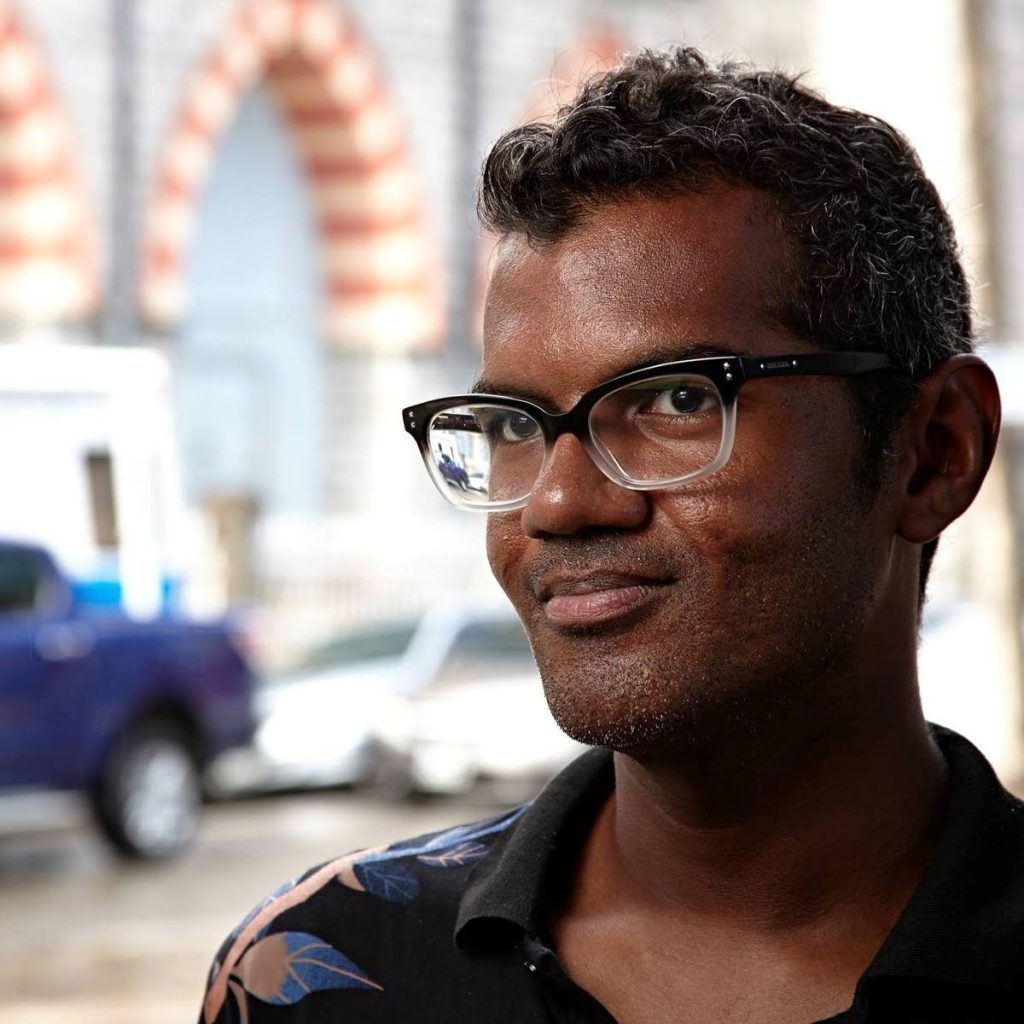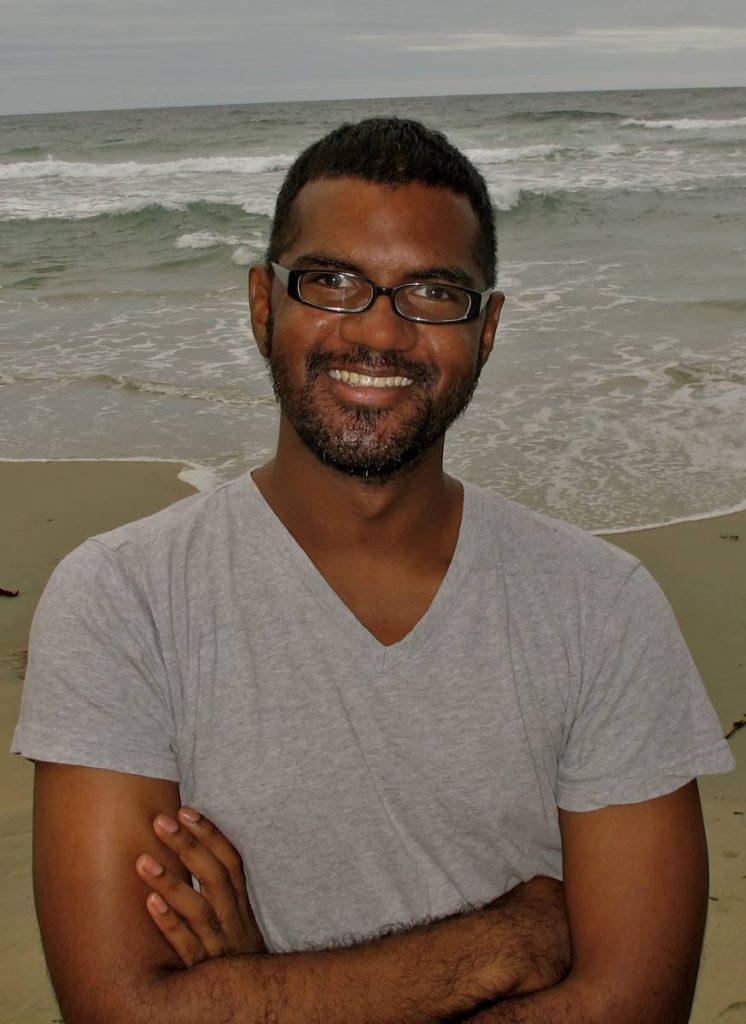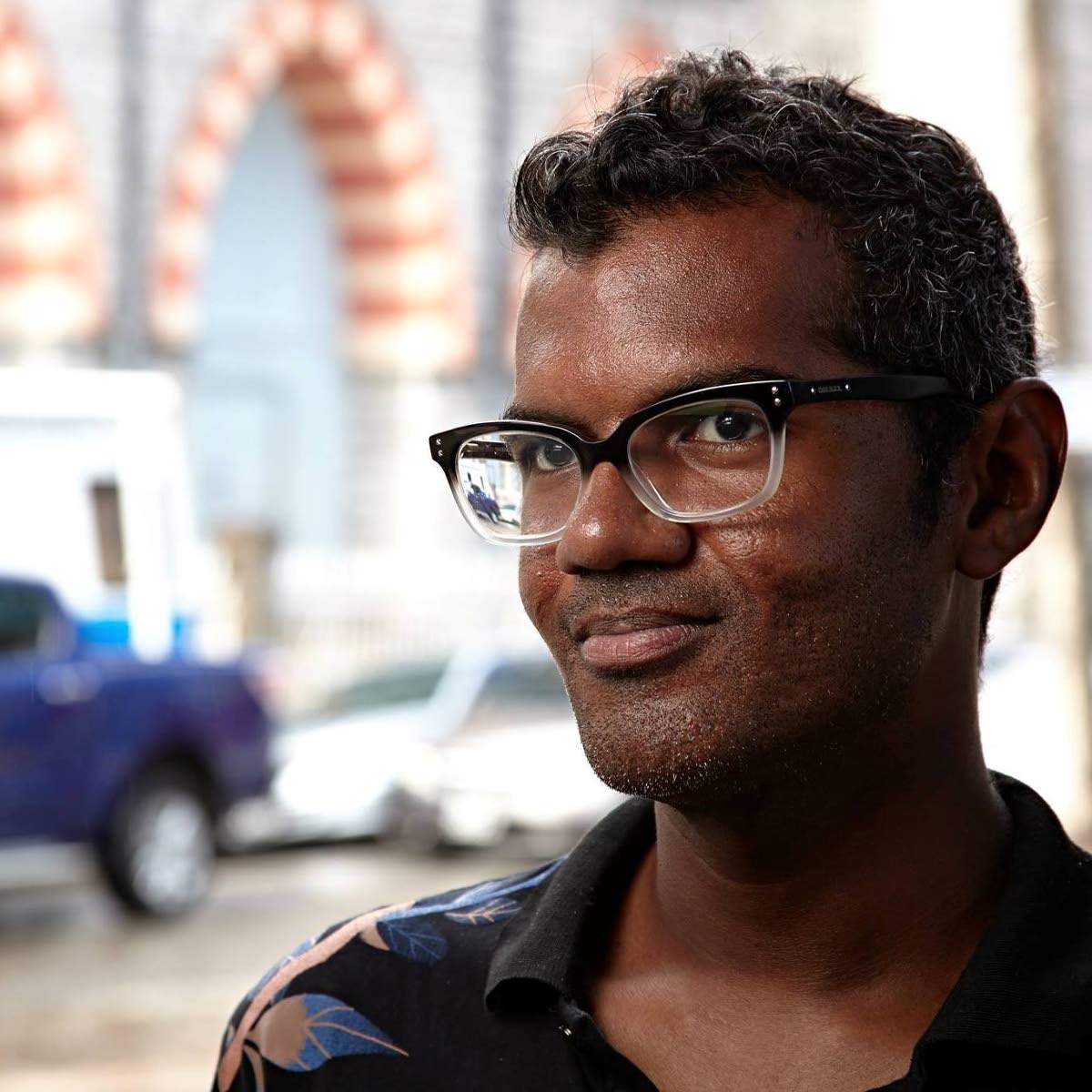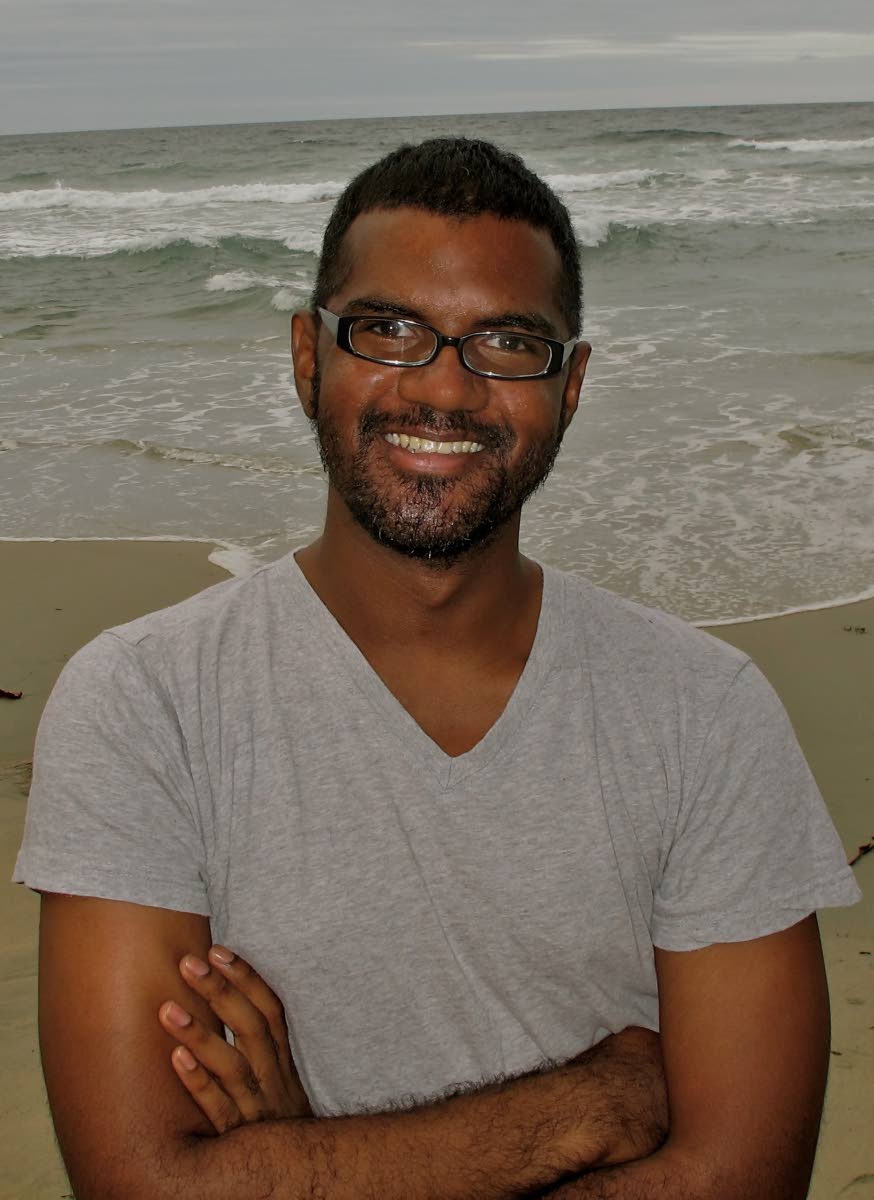A trip into other worlds

Vahni Capildeo
Readers of Andre Bagoo’s third book, Pitch Lake, will find themselves enjoying an easy trip into the other worlds that good literature can offer. The settings appear recognisable: a coastline, a beach house, a bar, gaol, the movies, bed.
However, the poems sing their own warning:
Even the beach is deceptive
a piece of wood turns into a dolphin
a rock is really soft clay
all things come undone at Redhead Bay
I go, I go, I go, I go –
(Redhead Bay, Cuman’)
Nothing is quite as it seems. Like the American playwright Tennessee Williams, Bagoo deals in transformations of “truth” or “reality.” His work’s pleasant or playful surface exists for and because of its depths.
Pitch Lake, the title of the book, refers to the asphalt deposit in southwest Trinidad; it stakes Bagoo’s claim, as a regionally based Caribbean writer, to a particular imaginative landscape.

Yet the way to read poetry is not the way to read prose; multiple meanings are interleaved with each other, and it is not necessary to choose one. This multiplicity takes effect from the outset. The spacing between the words Pitch Lake on the flyleaf separates them.
Now “pitch” could equally be musical; or a cricket pitch; or an action of pitching. Even such a simple word as “lake” is a double agent. Floating away from the connection with “pitch,” it regains its aspect as water: shining, reflective, perilous. In painting, a “lake” is a type of pigment, sometimes made with unusual ingredients. Lakes can glaze over and alter other colours.
Bagoo is also a visual artist in what is becoming a tradition of Caribbean writers as interdisciplinary artists. There is Walcott, of course. Recently and perhaps more vividly there is the influence of Bocas Litfest programme director Nicholas Laughlin’s writings and interactions, for example the “rufus,” “madder” red and “craquelure” of his artist-poems in The Strange Years of My Life, another Peepal Tree publication. The epigraph that Bagoo has chosen to place at the front of his poetry collection, “Now I am a lake,” from Sylvia Plath’s Mirror, closes the circle of associations.
To look again at Bagoo’s language is to realise that those poems with historic and domestic locations (some now thought of as tourist destinations) are gateways into familiarity with stranger places. The repetition of “I go,” in the lines quoted above, recalls tricksy, travelling spirits such as Shakespeare’s Ariel and Puck. Bagoo himself has been one of the moving spirits of the Douen Islands creative collaborators, who do not fear the douens, but re-value the shady playfulness of those childlike, voracious forest beings. This is another link between Bagoo and Caribbean contemporaries such as Shivanee Ramlochan, who are part of a new era of boundary-crossers. Under such guidance as Pitch Lake’s poems offer, intense strangeness sneaks up onto readers, or precipitates itself onto them. For example, the poem Poui might be expected to be about the well-loved poui trees with pink or yellow flowers. Instead, it is about the night terrors of a new lover who wakes “screaming,” having “dreamt of flowers upon flowers, / gold petals coating the island like butterflies,” on an island of inequalities, where “some of us are blooming / and others not” (19).
Catullus in Libya speaks in the voice of a Roman poet of 2,100 years ago, who bursts with heat and bisexual passion, while foreseeing bitterly that he will be remembered for just one female lover, a “woman /of sand.”
Bagoo renders this character’s self-pity with skilful surrealism: “My beheaded penis will not come / back like sparrow on the cedar tree.” The beach house, a dwelling part reality, part imagination, recurs throughout the book like a dream that recurs with slight variations throughout a lifetime.
Naturally, given Bagoo’s craftiness, the poem titled The Beach House does not consist of the description of a mere physical building. It is rather more significant: a fable about elderly parents who “had already escaped,” and the impossible-seeming swiftness of death and decay.

Bagoo’s energy, ambition and sensitivity see him moved by a wide range of artists and writers. The struggle of preceding generations of Caribbean writers to enter, create, and challenge traditions, when confronted with the edifice of colonially-approved literature, has borne fruit. A post-Independence child, Bagoo is free to rethink whether it is “wrong to write of foreign things.” He is able to meet England’s canonical Romantic poet, William Wordsworth, as an equal, another man like himself, who sometimes felt “pensive and weary.” The grounds of emotion are “the same country.”
It is newly revolutionary for Bagoo to claim the right to share and express feelings. International markets too often pressure Caribbean poets towards exoticism, requiring them to offer complaints and documentaries. By making Pitch Lake’s poems respond to Horace, Jonathan Swift, Langston Hughes, Derek Walcott, Olive Senior, and many others, Bagoo creates a democratic zone of timelessness in which all writers and artists can address each other as contemporaries.
Yet Bagoo goes even further. He translates the bard of American identity, Walt Whitman, into a semi-fictional character, bringing him to Trinidad in a four-page sequence that also deals with addiction and exile. To make the middle of this sequence, Bagoo erases most of the words of a prose text by Whitman. He thus produces new works from the visual arrangement of the words which he allows to remain. This poem-by-erasure literally makes Whitman’s words tell Bagoo’s story. The process is not defacement or appropriation. Seeing the page, which could be full of words, emptied out instead, is an erotic experience. Two poets compound with each other across time, in an act which is both admiring and gently aggressive.
The last part of the book shows the most formal variation. It contains both the longest piece, a ten-page short story, and the shortest, a one-word poem. What is a short story doing in a book of poetry? What happens when you read a short story with the slowness and attention that poetry demands?
Read Pitch Lake to find out. Then you will find that you have to read it again; and then, that you want to read it again. Once you have dipped in, it will stick to you, and you will catch fire.
* Vahni Capildeo is a UK-based Trinidadian poet who won the 2016 Forward Prize for Poetry.




Comments
"A trip into other worlds"